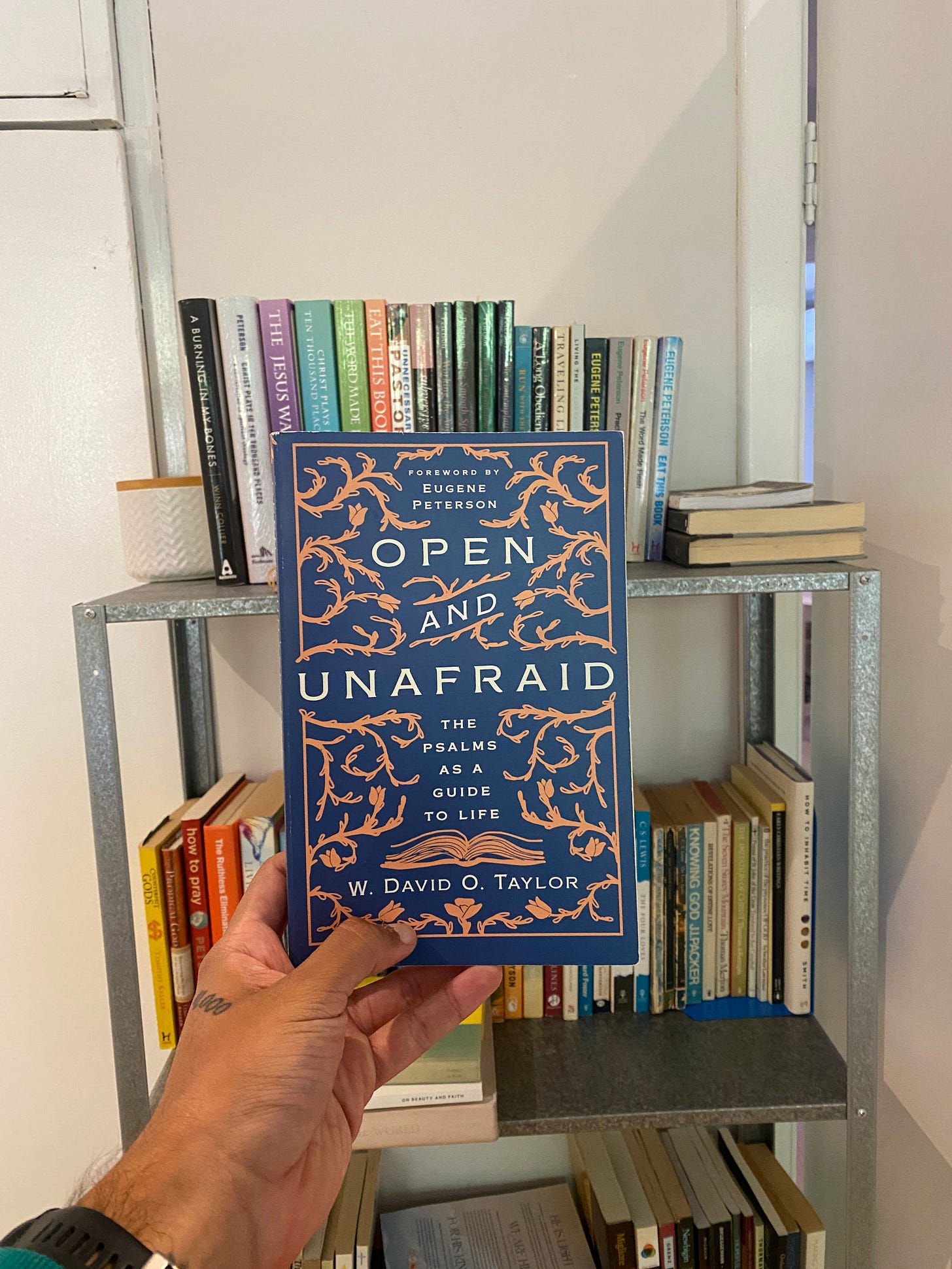“The Psalms as script for the telling of secrets is fully occupied by honest women and men of faith.”
Walter Brueggemann
“The Psalms enable us to bring into conversation with God feelings and thoughts most of us think we need to get rid of before God will be interested in hearing from us.”
Ellen Davis
What do you feel when you are naked? Shame? Liberation? Insecurity?
Nakedness in the biblical story often connotes a deep sense of being known and knowing.
Of being fully seen – love handles, stretch marks, crooked teeth, balding, scaring, and all of the things that make us feel insecure – and loved, delighted in, and chosen.
We live in a world of performance where we are told from early on to “put our best foot forward” and “never let them see you down.”
Social media creates a disembodied world of curation. So many of us fumble our way through life rife with anxieties and insecurities at a gut level.
Think about it. When was the last time you walked into a room full of peace and security?
How do we recover our true selves in a world of shame, shallowness and secrets?
The Psalms as Tools in Honesty
The Psalter is our guide to recapture a truly open and human life.
The Psalms point us to a God who knows. A God that speaks life and blessing and goodness and beauty into the broken and crooked parts of our lives. Words and cries of people who have been there and done that. But if we have any hopes of living in and with such a God and his people, we must learn the way of honesty.
The Psalms offer a “powerful aid to unhide1.”
The psalms invite us to strip off our clothes and stand before God naked. At first, this is awkward at best and painful at worst.
But as the theologian and pastor David Taylor writes:
“If we are to be free, our secrets must be told. If we wish to flourish in our God-given calling, our secrets must be brought into the light so we are no longer governed by their corrosive and destructive power. If we desire to be fully human, we must abandon all our efforts not to just hide our secrets but also to justify them. This is what the psalms help us to do: tell our secrets faithfully2.”
Lest this becomes an abstract soliloquy, let me tell you a secret or insecurity of my own.
I am deeply insecure about being bald; it makes me feel ugly and unattractive.
Even though my best friend and housemate - Jayden - assures me that I am devilishly handsome and that my head was divinely sculpted. He also reminds me that some of the most handsome men in the world are also bald – “think about it: Jason Statham, Michael Jordan, the Rock.” I find this list funny, but he means it.
And he knows some of the deepest parts of me.
He’s walked with me through my past struggles with alcohol, and his love and knowingness have been a source of empowerment to relinquish my dependence on liquid courage. He also reminds me of who I am becoming, not of the mistakes I’ve made.
In a way, our relationship is a Psalmic one – for the psalms weren’t written by an existential loner but by and for the community of God.
Taylor again reminds us that “honesty (nakedness) and community are deeply linked”, and it is “practically impossible to be truly open and unafraid apart from a community that has fully embraced the grace of God3.”
Jayden’s sticking by me in my moodiness, insecurities, and childishness has shown me parts of Christ that I had and have yet to fully live into.
Now, what am I getting at? Oh yes, insecurities sometimes do point to underlying false narratives that need to be uprooted, but the best antidote is not a greater vision of self it is a greater vision of Life altogether.
Psalms 139 is where we begin. For v23 shows us that God is like a loving mother laying eyes on her naked and helpless child.
A mother looks upon her bloody, needy child with wonder and warmth and speaks words of love and life. And it is only when we stand before Godlike newborns, vulnerable and needy, that we uncover our truest identity as fearfully and wonderfully made (V14).
These, too, are the words Christ speaks over you and me when we come to him as such, naked and needy. And from this place, the Psalms launch us into a world of living and praying honestly.
The Psalms lead us to slowly but assuredly strip away the clothes and insecurities on our souls and, hearts and minds and inch toward a God that loves and leads our wounded and shamed parts back to the path of life. In this way, the Psalms teach us to pray and live “who we actually are, not who we ought to be4.”
Thus, it is standing naked before God where we can finally learn to love and live. For “we can only discover who are by loving as God loves5.” And in life like the Psalms, Grace has the final word.
David Taylor, Open and Unafraid: The Psalms as a Guide to Life, (Nashville: Nelson Books, 2020), 3.
Taylor, Open and Unafraid, 2.
Taylor, Open and Unafraid, 9.
Eugene Peterson. Answering God: The Psalms as Tools for Prayer, (New York: HarperCollins, 1989), 100. David Taylor adds: “When we pray the psalms by the empowering and transforming presence of the Holy Spirit, we pray not just who we actually are but also who we can be and shall be by grace.” Taylor, Open and Unafraid, 7.
Christopher West, Theology of the Body for Beginners: Rediscovering the Meaning of Life, Love, Sex, and Gender, (Palm Beach, FL: Beacon Publishing, 2018), 37.



